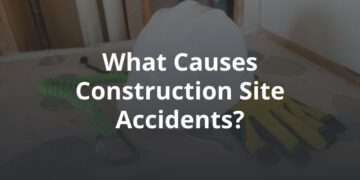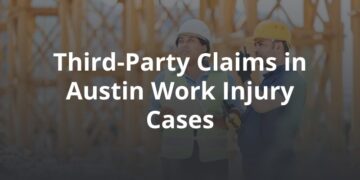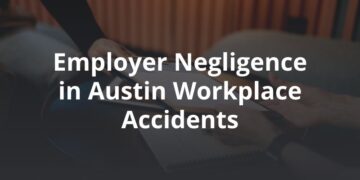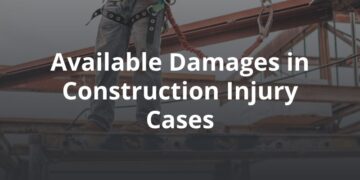In Texas, property owners have a legal duty to keep their premises in a reasonably safe condition. Although the specific responsibilities vary based on the circumstances and the type of visitor, property owners have a general obligation to prevent injury risks and hazards.
If a property owner in Texas is negligent or falls short of the duty to maintain a safe premises, he or she can be held legally responsible for a related visitor injury. This type of civil case is known as a premises liability claim.
What Is the Premises Liability Law in Texas?
Premises liability is a subset of personal injury law that governs the legal responsibilities property owners have regarding the safety of their premises. A premises liability claim can be filed in Texas if a property owner fails to take reasonable precautions to ensure the safety of property visitors and if this results in an injury.
If property owner negligence results in a preventable accident, such as a slip and fall, staircase accident, swimming pool accident, or animal attack, the owner can be held liable, or legally and financially responsible, for the victim’s injuries and losses. Common examples of owner negligence are poor property maintenance, insufficient inspections and inadequate security.
What Are a Property Owner’s Basic Responsibilities in Texas?
Overall, property owners in Texas have a legal obligation to take reasonable measures to maintain safe premises. The negligent failure to fulfill this responsibility could result in liability for related injuries suffered by visitors.
A property owner’s basic duties of care in Texas can include:
- Ensure a reasonably safe, hazard-free premises
- Regularly inspect and maintain the property
- Promptly address any dangerous conditions
- Warn visitors of potential injury risks
- Take reasonable security measures
- Comply with building codes and regulations
- Protect children from harm
An owner is responsible for maintaining the entire property, including buildings, structures, bodies of water, fixtures, landscaping and equipment. What is “reasonably safe” depends on the circumstances, including the type of property, the kind of visitor and the laws that apply.
Three Classifications of Visitor
Under Texas law, a property owner’s responsibilities when it comes to preventing accidents vary based on the type of visitor. There are three different legal classifications of visitors. Each comes with different duties of care for a property owner to ensure the visitor’s safety.
Invitee
An invitee is a visitor who enters a property with the owner’s permission and for the owner’s own purposes or benefit. An example is a customer who enters a business that is open to the public, such as a patron at a restaurant or a shopper at a grocery store.
Invitees are owed the highest duties of care by property owners in Texas. Premises liability laws require owners to inspect their properties for unknown, new or hidden hazards before welcoming invitees to the property. They must also repair any discovered defects promptly and warn guests of dangerous conditions that may not be obvious.
Licensee
A licensee is someone who enters a property with permission from the property owner or legal authority to do so, but who enters for his or her own purposes or social reasons rather than for the benefit of the property owner. An example is a social guest or friend.
Property owners in Texas owe a slightly lesser duty of care to licensees compared to invitees. While they still have a responsibility to address any dangerous conditions and warn of potential hazards, they generally do not have a duty to inspect the premises for new hazards.
Trespasser
Trespassers are people who do not have legal authority or the owner’s permission to enter or remain on a property. Texas property owners do not owe any duties of care to trespassers. However, they may not harm or injure trespassers through intentional, willful or wanton conduct (e.g., setting up traps to ambush trespassers).
Exceptions for Minors Under the Age of 18
One important exception to Texas’s visitor classification system is a child who is under the age of 18. State law imposes special duties of care on a property owner when it comes to keeping a premises safe for minors – even if a child is trespassing on private property.
Property owners owe an increased duty of care to children under 18 years old who are present on the premises, even if the child does not have the owner’s permission to be there. The attractive nuisance doctrine states that property owners must prevent and address hazards that may be particularly enticing to children, such as trampolines or swimming pools.
Elements of a Premises Liability Claim in Texas
If a premises liability claim is filed in Texas, the filing party or plaintiff bears the burden of proof. This means it is the injured accident victim’s responsibility to prove the necessary elements to establish the claim being made.
The basic elements of a premises liability claim are:
- Duty of care: the property owner owed the plaintiff a responsibility to maintain safe premises.
- Breach of duty: the property owner breached the duty of care through an act of negligence.
- Causation: the owner’s breach of duty was a proximate cause of the plaintiff’s injuries.
- Damages: the plaintiff suffered compensable damages as a result of the breach of duty.
The burden of proof in a premises liability claim is a “preponderance of the evidence,” meaning more likely to be true than not true. An experienced attorney can help you establish the elements of your case by collecting evidence against the property owner or another defendant.
How to Prove a Premises Liability Claim in Texas
Proving a premises liability claim requires clear and convincing evidence that the property owner in your case had a duty to maintain safe premises for you as a visitor but failed to do so, resulting in your injuries.
You or your attorney must establish that the property owner was aware or reasonably should have been aware of the hazardous condition that caused your accident but failed to address it in a timely manner.
Your premises liability claim may also involve complicated legal concepts such as actual and constructive notice, the open and obvious doctrine, foreseeability, assumption of risk, and comparative negligence.
An Austin personal injury attorney from FVF Law can educate you on your rights and explain the laws that apply to your case. Contact us today or call (512) 982-9328 to get started with a free, no-obligation case consultation.







